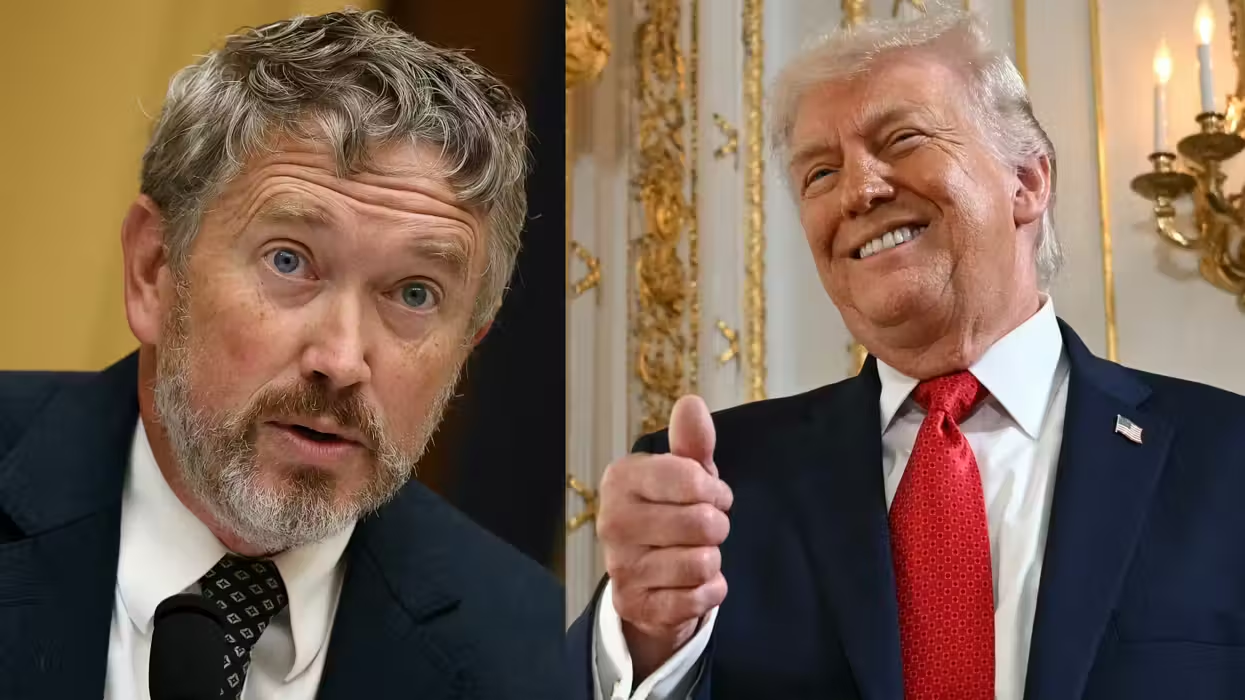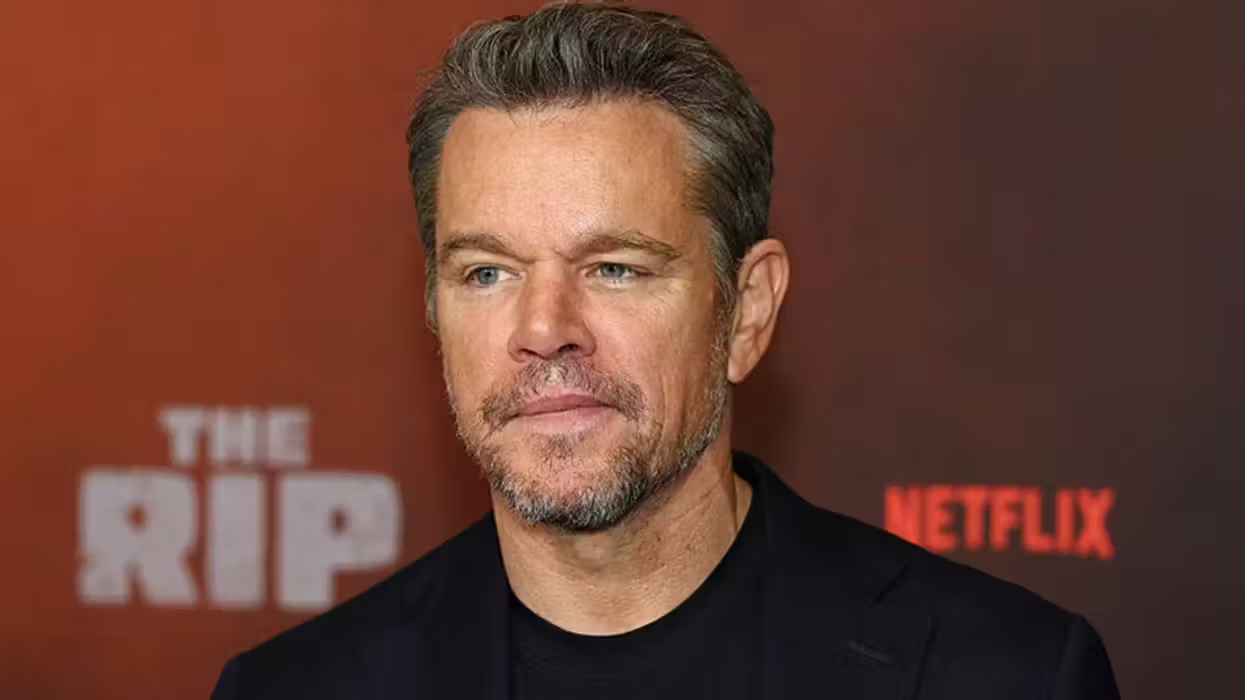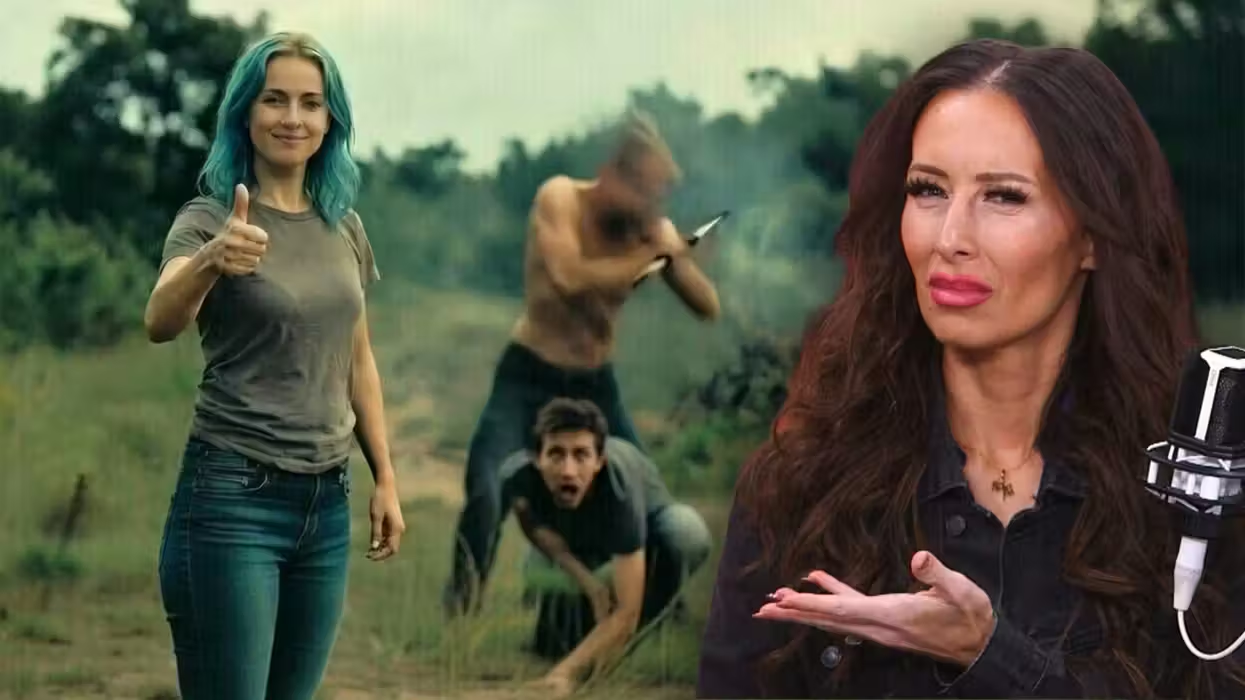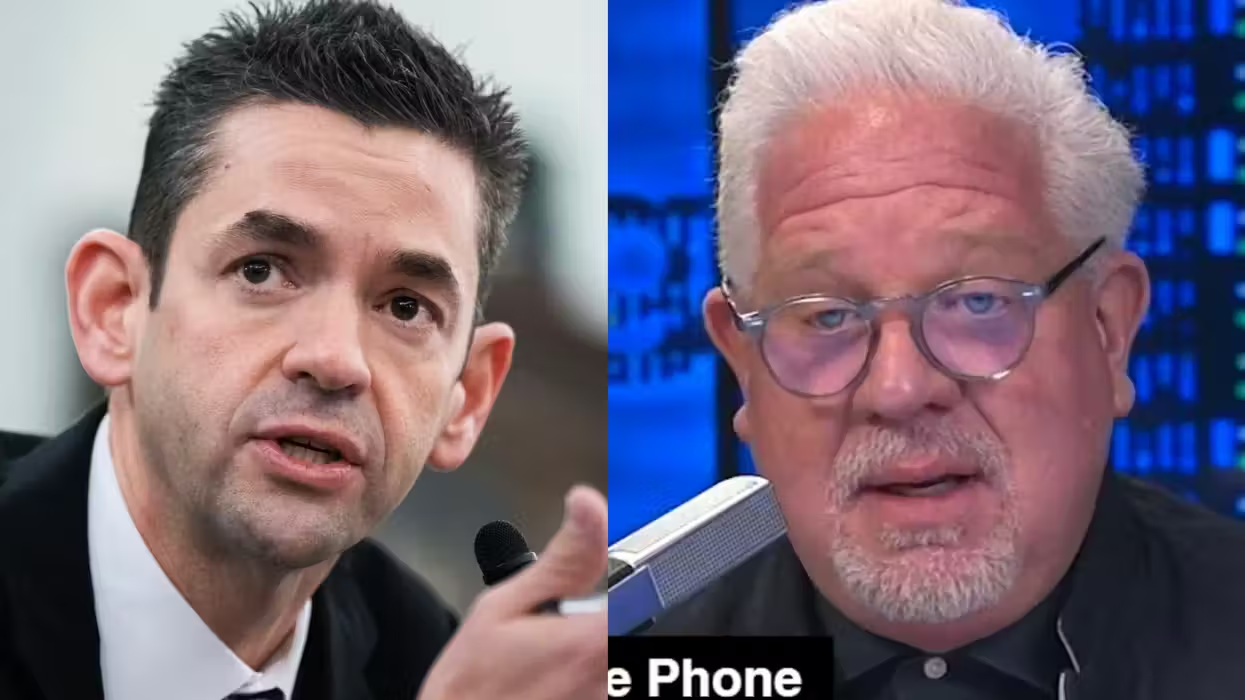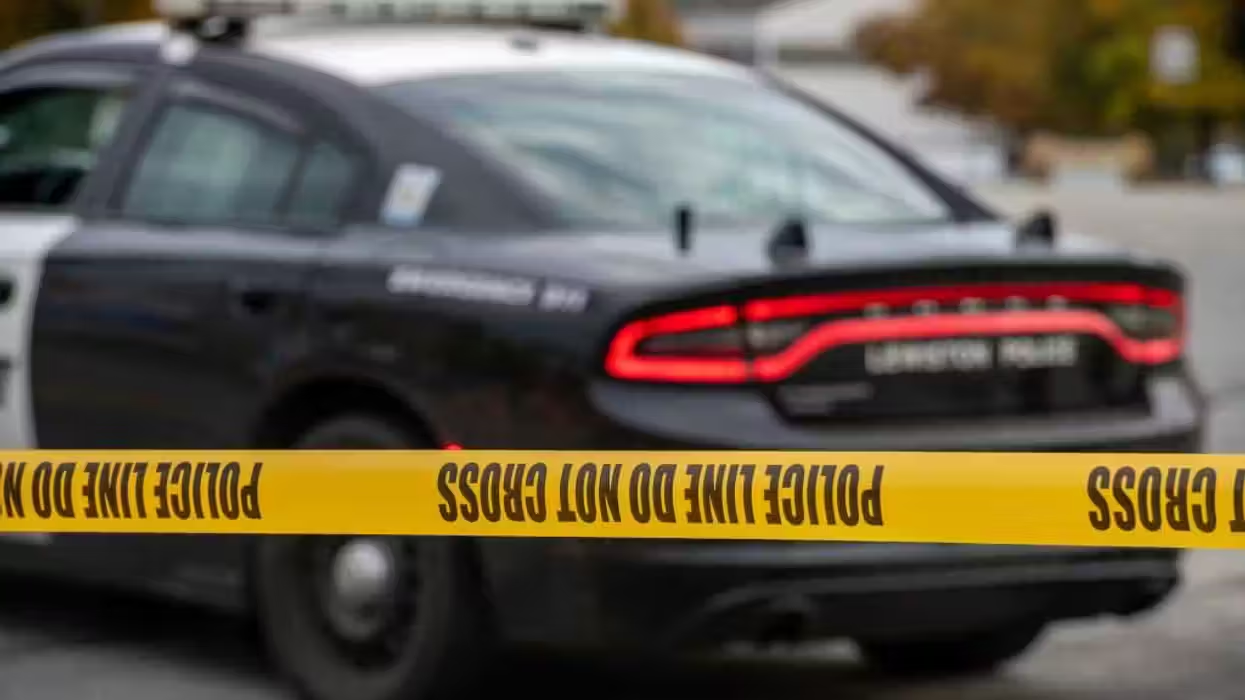On September 11, 2012, one year ago, a terrorist attack on the U.S. consulate in Benghazi, Libya, claimed the lives of four Americans — including a U.S. ambassador.
The next day, President Barack Obama vehemently declared the U.S. would bring those responsible to justice.
"Make no mistake," the president firmly said. "We will bring justice to the killers who attacked our people."
Today, on the one year anniversary, those who perpetrated the act of terrorism have not been held accountable and many questions remained unanswered.
TheBlaze has assembled a timeline detailing how the events first unfolded in Benghazi — and now on the political battlefield in Washington, D.C.
 A picture taken on September 10, 2013 shows the main gate of the US consulate in Benghazi on the eve of the anniversary of the 2012 attack on the diplomatic mission that left four people dead, including the ambassador. The September 11, 2012 attack that killed ambassador Chris Stevens caused a political storm between US President Barack Obama's administration and his Republican opponents. (AFP/Getty Images)
A picture taken on September 10, 2013 shows the main gate of the US consulate in Benghazi on the eve of the anniversary of the 2012 attack on the diplomatic mission that left four people dead, including the ambassador. The September 11, 2012 attack that killed ambassador Chris Stevens caused a political storm between US President Barack Obama's administration and his Republican opponents. (AFP/Getty Images)
--
September 11, 2012
The day is quiet. There are no signs of the impending attack.
U.S. Ambassador Chris Stevens retires to his room on the American diplomatic compound in Benghazi at around 9 p.m., after escorting a Turkish diplomat outside to the main entrance of the consulate.
According to the Associated Press (AP), at that time "the situation is calm" and "there are no protests." There is no sign of a spontaneous protest against a newly-released American-made movie attacking Islam.
Then, about an hour later, the attack comes.
According to the AP, roughly 150 "bearded gunmen" surround the consulate, showering it in a barrage of automatic weapons fire and employing the use of rocket-propelled grenades.
Phone calls requesting security reinforcements are made to officials in D.C., the embassy in Tripoli, the Libyan authorities and a U.S. quick reaction force about a mile away.
The attackers breach the compound, however, before any help arrives.
They set fire to the main consulate building. Stevens, along with Foreign Service Officer Sean Smith inside, die of smoke inhalation.
Watch an illustrated summary of events:
Eventually, a six-person reaction team arrives on the scene with about 60 Libyan security officers. They attempt to secure a perimeter, but can't and decide to evacuate the consulate.
As they evacuate, the group sustains heavy machine gun fire and has grenades lobbed at their vehicles. At one point, the team even drives into opposing traffic, before finally arriving at another compound.
A team of security officials from the embassy in Tripoli also meets them there.
At around 4 a.m., the compound the consulate staff has retreated to comes under attack. The building is hit by mortar fire and two former U.S. Navy Seals, Glen Doherty and Tyrone Woods, are killed.
At this point, the decision is made to evacuate the city entirely.
--
September 12, 2012
Obama addresses the nation from the Rose Garden and condemns the "outrageous and shocking attack" in the "strongest terms."
"I've also directed my administration to increase our security at diplomatic posts around the world," Obama says. "And make no mistake, we will work with the Libyan government to bring to justice the killers who attacked our people."
"No acts of terror will ever shake the resolve of this great nation, alter that character, or eclipse the light of the values that we stand for," he continues. "Today we mourn four more Americans who represent the very best of the United States of America. We will not waver in our commitment to see that justice is done for this terrible act. And make no mistake, justice will be done."
Clinton reportedly references the attack as an "attack by a small and savage group."
--
September 14, 2012
The bodies of Stevens, Smith, Woods and Doherty are returned to the U.S.
Smith's mother would later say that Obama, Clinton, and then U.S. Ambassador to the United Nations Susan Rice told her "nose-to-nose" that day that the attack was the result of an anti-Muslim YouTube video:
--
September 16, 2012
Susan Rice says on television the attack began as a spontaneous protest, "based on the best information we have to date," adding no evidence gathered shows it was premeditated or coordinated.
--
September 18, 2012
White House Press Secretary Jay Carney says the attack is still under investigation, but says there is no evidence pointing to an organized terrorist attack.
Later that night, Obama explains to David Letterman on TV that the anti-Muslim movie inflamed Muslims worldwide, giving "extremists and terrorists" an "excuse" to attack our embassies, "including the one, the consulate in Libya."
--
September 20, 2012
Obama continues to point to the anti-Islam film as the cause of the attack.
"What we do know is that the natural protests that arose because of the outrage over the video were used as an excuse by extremists to see if they can also directly harm U.S. interests."
Carney also says "what happened in Benghazi was a terrorist attack."
--
October 5, 2012
Lt. Col. Andy Wood, who headed a "Site Security Team" in Libya, says U.S. diplomatic personnel were repeatedly denied by the State Department in D.C. requests for increased security.
--
October 15, 2012
Clinton explains in an interview with CBS News that the U.S. did not send security reinforcements from outside Libya "partly because of the difficulties of trying to do that."
She notes in the interview the situation was "fast moving" and "very difficult assault to try to figure out."
--
October 16, 2012
It is reported unarmed Predator drones were moved to fly over Benghazi during the attack.
--
October 24, 2012
It is confirmed government investigators have footage from security cameras.
--
November 14, 2012
Obama says attacks on the way Rice handled the attack are "outrageous."
--
December 11, 2012
At a closed-door hearing, it is revealed that State Department personnel never fired a single shot in their defense.
--
December 18, 2012
Independent panel concludes "systemic" failures in leadership led to "grossly" inadequate security at Benghazi.
The panel, however, determines that no officials violated or ignored their duties and recommended no disciplinary action for the time being.
--
December 20, 2012
The State Department acknowledges "mistakes occurred" and pledges to remedy the "systemic" failures that led to the attack.
--
December 19, 2013
Following the State Department's scathing report, four officials in the department are disciplined.
--
January 23, 2013
Clinton appears before Congress and says she takes responsibility for the attack.
"As I have said many times, I take responsibility. And nobody is more committed to getting this right. I am determined to leave the State Department and our country safer, stronger, and more secure," she says. "For me, it's personal."
Clinton, however, argues the root cause behind the attack is irrelevant.
"We had four dead Americans," she says. "Was it because of a protest or because of guys out for a walk one night and decided to go kill some Americans? At this point what difference does it make, Senator?"
--
February 7, 2013
Then-Defense Secretary Leon Panetta and Joint Chiefs Chairman General Martin Dempsey testify before Congress.
Panetta says U.S. did "everything we could" to save American lives once the attacks began.
--
February 14, 2013
Appearing on the "Daily Show With Jon Stewart," Rice lashes out at her critics saying they are "dead wrong" on Benghazi and "are in fact doing a disservice to those we lost."
--
April 23, 2013
An interim report on the Benghazi attacks is released by five Republican controlled House committees. The report says Clinton approved security reductions at the consulate, pointing to a memo bearing her signature.
The report also alleges the White House altered talking points for Susan Rice drafted by the intelligence community.
--
April 30, 2013
A Benghazi whisteblower's lawyer accuses the Obama administration of blocking her client's efforts to speak out.
--
May 5, 2013
An interview conducted with Gregory Hicks, a U.S. diplomatic official in Libya during the attack, is leaked.
"I think everybody in the mission thought it was a terrorist attack from the beginning," Hicks told investigators.
"For there to have been a demonstration on Chris Stevens' front door and him not to have reported it is unbelievable," he said. "I never reported a demonstration; I reported an attack on the consulate. Chris - Chris's last report, if you want to say his final report - is, 'Greg, we are under attack.'"
--
May 6, 2013
More details from the Hicks testimony are leaked.
In an interview he claims a team of Special Forces, prepared to fly to Benghazi from Tripoli, were given the order to stand down.
--
May 8, 2013
Hicks testifies before Congress and tears up when he describes the phone call informing him of the death of Ambassador Stevens, saying it was "the saddest phone call I've ever received in my life."
--
May 15, 2013
The White House releases internal emails showing changes to Benghazi talking points. The emails show that the CIA initially referenced the participation of al-Qaeda, but those references were later removed.
--
May 19, 2013
It is revealed that Raymond Maxwell, one of the four officials disciplined in December, is a "prolific poet" and has authored numerous poems about the scandal. In one, he implies he has been made a scapegoat and says the State Department has spun a "web of lies."
--
July 31, 2013
The White House says it considers the controversy over Benghazi to be a "phony" scandal.
--
August 1, 2013
CNN learns that dozens of CIA operatives were on the ground and the spy agency is "going to great lengths to make sure whatever it was doing remains a secret."
According to one source, it is an "unprecedented attempt to keep the spy agency's Benghazi secrets from ever leaking out."
--
August 6, 2013
Federal authorities file the first criminal charges in connection with the Benghazi attack. Prominent Libyan militia leader Ahmed Abu Khattala was charged in connection with the attacks, along with about a dozen others.
--
August 20, 2013
The four State Department officials put on administrative leave are allowed back on the job after being cleared by Secretary of State John Kerry.
--
September 8, 2013
Chris Wallace grills White House Chief of Staff Denis McDonough on why the U.S. after on year has failed to arrest Khattala.
“Why is it that reporters seems to be able to find this guy, who the government is charging with involvement in Benghazi, but law enforcement can’t find him?” Fox News host Chris Wallace asked, adding “it’s been a year, sir.”
“You know what the United States does?” McDonough replied. “We track every lead until we find and can accomplish what we do.”
--
September 9, 2013
The New York Times reports the Libyan government has "rebuffed the Obama administration's efforts to arrest the suspects."
--
September 10, 2013
Secretary of State John Kerry informs Congress he "will not honor the request to make Benghazi survivors available for questioning."
--
Follow Oliver Darcy (@oliverdarcy) on Twitter
--
[related]

 A picture taken on September 10, 2013 shows the main gate of the US consulate in Benghazi on the eve of the anniversary of the 2012 attack on the diplomatic mission that left four people dead, including the ambassador. The September 11, 2012 attack that killed ambassador Chris Stevens caused a political storm between US President Barack Obama's administration and his Republican opponents. (AFP/Getty Images)
A picture taken on September 10, 2013 shows the main gate of the US consulate in Benghazi on the eve of the anniversary of the 2012 attack on the diplomatic mission that left four people dead, including the ambassador. The September 11, 2012 attack that killed ambassador Chris Stevens caused a political storm between US President Barack Obama's administration and his Republican opponents. (AFP/Getty Images)

